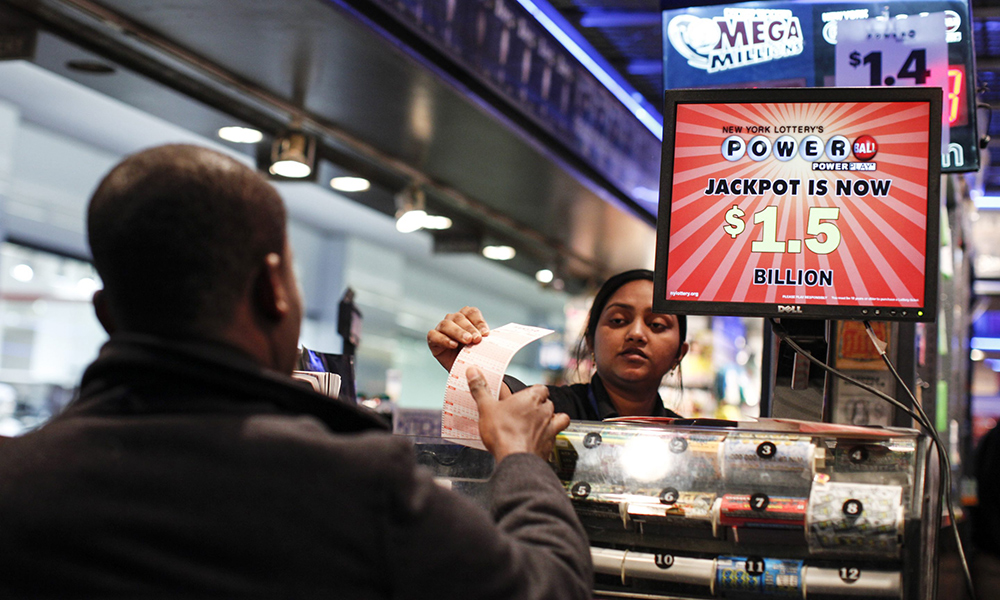
缩小种族贫富差距的最好办法是什么?美国的乔·拜登政府把解决这个问题作为优先事项,他们认为,答案在于政府调查、建章立制、进行拨款,而这正是白宫目前在积极推进的。
然而,解决贫富差距的最好机会却恰恰需要让联邦政府让道:部分投资规则于富人有利,会对大量少数族裔造成实质性不公,政府应该废除或改革这类投资规则。
20世纪80年代,美国证券交易委员会(Securities and Exchange Commission)制定的一些规则让有钱有势的人更容易获得那些最有可能挣大钱的投资机会,包括对冲基金、众筹房地产、风投基金、初创企业等等。要想在这些领域里投资,你的净资产必须大于等于100万美元,过去两年每年赚20万美元(或者夫妇二人共赚30万美元),或者满足需要花费大量时间和/或金钱的复杂要求。这些人就是所谓的“合格投资者”,只有10%的美国家庭符合条件。
对于那些从过去到现在从未受过歧视的人来说,成为一名合格投资者要容易得多。而另一边,许多少数族裔在财富积累的过程中遇到了一个又一个障碍。在吉姆·克劳主义盛行的时代,非裔美国人在实现财富增长的路上遭到了刻意阻挠。20世纪30至60年代,联邦政府的“红线”政策拒绝向居住在少数族裔社区的人发放抵押贷款,导致非裔美国人、拉丁裔美国人和美国原住民失去了建立财富平等的基础。直到今天,人们仍然担心金融机构怀有偏见,而这部分人受到的其他障碍比比皆是。
上述种种可悲的现实极大地加剧了种族贫富差距。白人家庭的平均退休储蓄接近8万美元,而非洲裔和拉丁裔家庭的平均退休储蓄不到3万美元。总体而言,典型的白人家庭净资产接近20万美元,拉丁裔家庭净资产约为4万美元,非裔家庭仅为2.5万美元。虽然其中有很多原因,但不可否认的是,歧视阻碍了少数族裔的财富增长。
“合格投资者”的概念是另一个障碍。少数族裔在积累财富的道路上原来就会时常受阻,现在还无法参与那些本来能够帮助他们迎头赶上的投资机会。这是在不公之上叠加侮辱,而且几乎可以确定,正因如此,种族贫富差距不仅会持续存在,还可能会恶化。毕竟,合格投资者的财富增长速度往往比其他投资者快得多。
以众筹房地产为例,形式包括多人集资为开发商融资、购买私人地产的股权,或者参与房地产投资信托。这些投资工具因为其潜在的高回报而备受富裕投资者的青睐。房地产投资的历史表现往往超过股市,通常超过40%之高,而合格投资者能够做的私人投资回报甚至更高。有个令人震惊的数字:世界上90%的百万富翁是通过房地产投资来实现的。而一旦有了好机会,财富就可以自我延续。
为什么反而不允许钱少的人多赚钱?最常见的答案是:这类投资风险很高,低收者不应该面临遭受巨大损失甚至彻底破产的风险。然而,这种说法哪怕算不上是社会经济歧视,也充满了家长式作风。股市也有风险,任何曾经持有安然公司(Enron)股票的人都能够证明这一点,但股市仍然对全部人开放。
往远了说,人们有做出各种决定的自由,哪怕这个决定具有重大风险,比如买房、结婚和参军。我们也可以做一些几乎没有任何经济效益的事情,例如买彩票。在一个社会里,当谈及为自己和所爱之人做出财务决定时,应该考虑的是自由和信任。
对于那些在美国历史上被剥夺了致富权利的人来说更是如此。通过废除或改革合格投资者规则,他们将有更多、更好的财富积累机会。目前的规则鼓励的是大额投资,但没有任何理由拒绝1美元或100美元的投资。
通过实施正确的改革,人们能够想投资多少就投资多少。更重要的是,他们可以获得比想象中更多的回报。任何一位合格投资者都能够告诉你,由少成多的过程可以非常快。美国人能够越早认清这个事实,我们的国家就可以越早缩小存在已久的种族贫富差距。(财富中文网)
本文作者彼得·雷克斯是技术、投资和房地产公司Rex的创始人及首席执行官。
译者:Agatha
缩小种族贫富差距的最好办法是什么?美国的乔·拜登政府把解决这个问题作为优先事项,他们认为,答案在于政府调查、建章立制、进行拨款,而这正是白宫目前在积极推进的。
然而,解决贫富差距的最好机会却恰恰需要让联邦政府让道:部分投资规则于富人有利,会对大量少数族裔造成实质性不公,政府应该废除或改革这类投资规则。
20世纪80年代,美国证券交易委员会(Securities and Exchange Commission)制定的一些规则让有钱有势的人更容易获得那些最有可能挣大钱的投资机会,包括对冲基金、众筹房地产、风投基金、初创企业等等。要想在这些领域里投资,你的净资产必须大于等于100万美元,过去两年每年赚20万美元(或者夫妇二人共赚30万美元),或者满足需要花费大量时间和/或金钱的复杂要求。这些人就是所谓的“合格投资者”,只有10%的美国家庭符合条件。
对于那些从过去到现在从未受过歧视的人来说,成为一名合格投资者要容易得多。而另一边,许多少数族裔在财富积累的过程中遇到了一个又一个障碍。在吉姆·克劳主义盛行的时代,非裔美国人在实现财富增长的路上遭到了刻意阻挠。20世纪30至60年代,联邦政府的“红线”政策拒绝向居住在少数族裔社区的人发放抵押贷款,导致非裔美国人、拉丁裔美国人和美国原住民失去了建立财富平等的基础。直到今天,人们仍然担心金融机构怀有偏见,而这部分人受到的其他障碍比比皆是。
上述种种可悲的现实极大地加剧了种族贫富差距。白人家庭的平均退休储蓄接近8万美元,而非洲裔和拉丁裔家庭的平均退休储蓄不到3万美元。总体而言,典型的白人家庭净资产接近20万美元,拉丁裔家庭净资产约为4万美元,非裔家庭仅为2.5万美元。虽然其中有很多原因,但不可否认的是,歧视阻碍了少数族裔的财富增长。
“合格投资者”的概念是另一个障碍。少数族裔在积累财富的道路上原来就会时常受阻,现在还无法参与那些本来能够帮助他们迎头赶上的投资机会。这是在不公之上叠加侮辱,而且几乎可以确定,正因如此,种族贫富差距不仅会持续存在,还可能会恶化。毕竟,合格投资者的财富增长速度往往比其他投资者快得多。
以众筹房地产为例,形式包括多人集资为开发商融资、购买私人地产的股权,或者参与房地产投资信托。这些投资工具因为其潜在的高回报而备受富裕投资者的青睐。房地产投资的历史表现往往超过股市,通常超过40%之高,而合格投资者能够做的私人投资回报甚至更高。有个令人震惊的数字:世界上90%的百万富翁是通过房地产投资来实现的。而一旦有了好机会,财富就可以自我延续。
为什么反而不允许钱少的人多赚钱?最常见的答案是:这类投资风险很高,低收者不应该面临遭受巨大损失甚至彻底破产的风险。然而,这种说法哪怕算不上是社会经济歧视,也充满了家长式作风。股市也有风险,任何曾经持有安然公司(Enron)股票的人都能够证明这一点,但股市仍然对全部人开放。
往远了说,人们有做出各种决定的自由,哪怕这个决定具有重大风险,比如买房、结婚和参军。我们也可以做一些几乎没有任何经济效益的事情,例如买彩票。在一个社会里,当谈及为自己和所爱之人做出财务决定时,应该考虑的是自由和信任。
对于那些在美国历史上被剥夺了致富权利的人来说更是如此。通过废除或改革合格投资者规则,他们将有更多、更好的财富积累机会。目前的规则鼓励的是大额投资,但没有任何理由拒绝1美元或100美元的投资。
通过实施正确的改革,人们能够想投资多少就投资多少。更重要的是,他们可以获得比想象中更多的回报。任何一位合格投资者都能够告诉你,由少成多的过程可以非常快。美国人能够越早认清这个事实,我们的国家就可以越早缩小存在已久的种族贫富差距。(财富中文网)
本文作者彼得·雷克斯是技术、投资和房地产公司Rex的创始人及首席执行官。
译者:Agatha
What’s the best way to narrow the racial wealth gap? For the Joe Biden administration, which has made this issue a priority, the answer is government investigations, regulations, and grant programs, all of which the White House is actively pursuing.
Yet perhaps the biggest opportunity for action involves getting the federal government out of the way. The administration should repeal or reform the investing rules that favor the wealthy and effectively discriminate against many minority communities.
In the 1980s, the Securities and Exchange Commission (SEC) enacted rules that make it much easier for the rich and influential to access some of the most potentially lucrative investment opportunities, including hedge funds, most crowdfunded real estate, venture capital funds, start-ups, and more. To easily invest in these options, you must have a net worth of at least a million dollars, have made $200,000 a year for the past two years (or $300,000 as a married couple), or meet complex specifications that require significant time, money, or both. These are the so-called “accredited investors,” and only 10% of American households clear the bar.
Becoming an accredited investor is much easier for those who’ve never faced discrimination, past or present. Many minority communities, on the other hand, have faced barrier after barrier to wealth-building. In the Jim Crow era, African Americans were deliberately blocked from climbing the economic ladder. The federal policy of “redlining”, which denied mortgages to people living in minority neighborhoods from the 1930s to the 1960s, prevented African Americans, Latinos, and Native Americans from establishing a foundation of financial equity. To this day, people fear biased financial institutions, and there are many other examples of hurdles that hold people back.
These sad realities massively contribute to the racial wealth gap. Whereas White families have nearly $80,000 in retirement savings, on average, African American and Latino families have less than $30,000. Overall, the typical White family’s net worth is close to $200,000, Latinos have around $40,000, and African Americans have about $25,000. While many factors are at play, it’s undeniable that discrimination has held back minority wealth.
The “accredited investor” definition is one more barrier. Having so often been blocked from building their wealth, many minority communities are now blocked from investments that could make up ground. It’s insult on top of injustice, and it all but ensures that the racial wealth gap will not only persist but potentially worsen. After all, accredited investors are typically able to grow their wealth much faster than other investors.
Consider crowdfunded real estate, which involves multiple people pooling money to finance developers, purchase equity in private properties, or get involved in real estate investment trusts. These tools are favored by wealthy investors because of their potentially high returns. Real estate investments have a history of outperforming the stock market, often by as much as 40%, and private investments available to accredited investors can do even better. A stunning 90% of the world’s millionaires achieved that status through real estate investing, and once the best opportunities are available, that wealth can become self-perpetuating.
Why are people with less money blocked from making more? The most common answer is that such investments have a high degree of risk, and lower-income individuals shouldn’t be faced with the possibility of steep losses or even a total wipeout. Yet there’s more than a whiff of paternalism, if not socio-economic discrimination, in that claim. Investing in the stock market is also risky, as anyone who owned Enron shares can attest, but it’s still open to anyone.
More broadly, people have the freedom to make all kinds of decisions that involve significant risk, such as purchasing homes, getting married, and joining the military. We can also do things that have little-to-no financial upside, like buying lottery tickets. As a society, when it comes to making financial decisions for yourself and your loved ones, the default should be freedom and trust.
That’s especially true for those who’ve been denied the right to rise throughout American history. By repealing or reforming accredited investor rules, they would have more and better opportunities to build their wealth. The current rules encourage most investments to involve big money, but there’s no reason they can’t be as little as a dollar or a hundred dollars.
With the right reforms, people could invest as much or as little as they want. More importantly, they could achieve more than they imagine. As any accredited investor would tell you, what starts small can get big fast. The sooner every American has the chance to discover that truth, the sooner our country will narrow the racial wealth gap, which has already existed for too long.
Peter Rex is the founder and CEO of Rex, a tech, investment, and real-estate firm.






